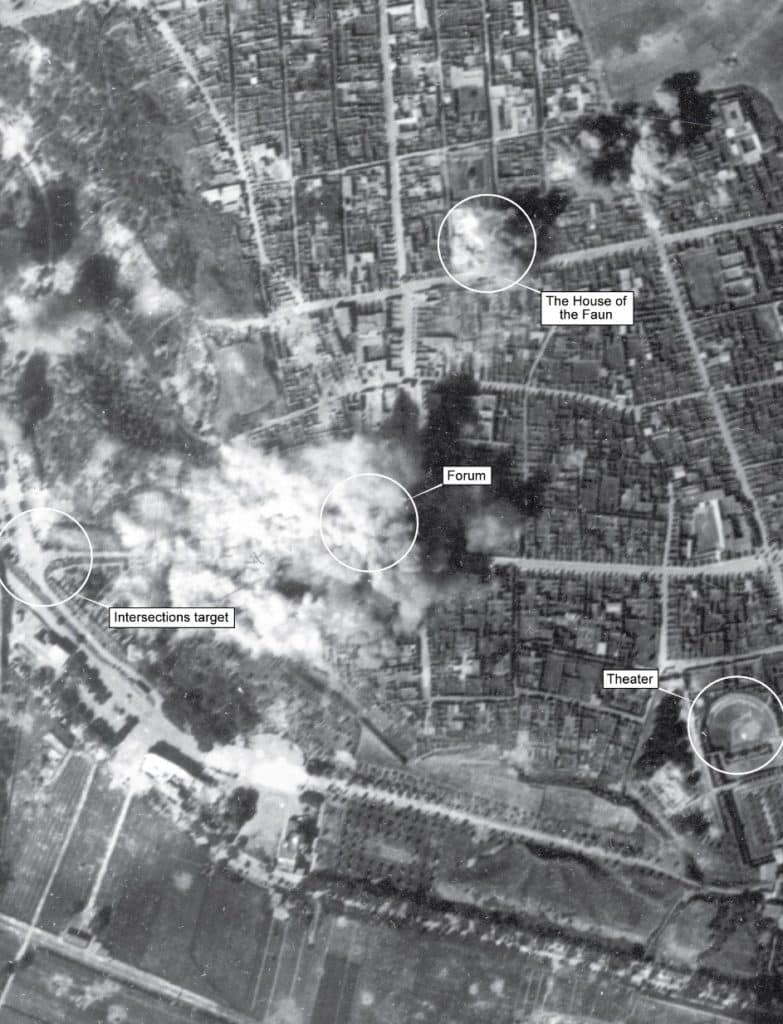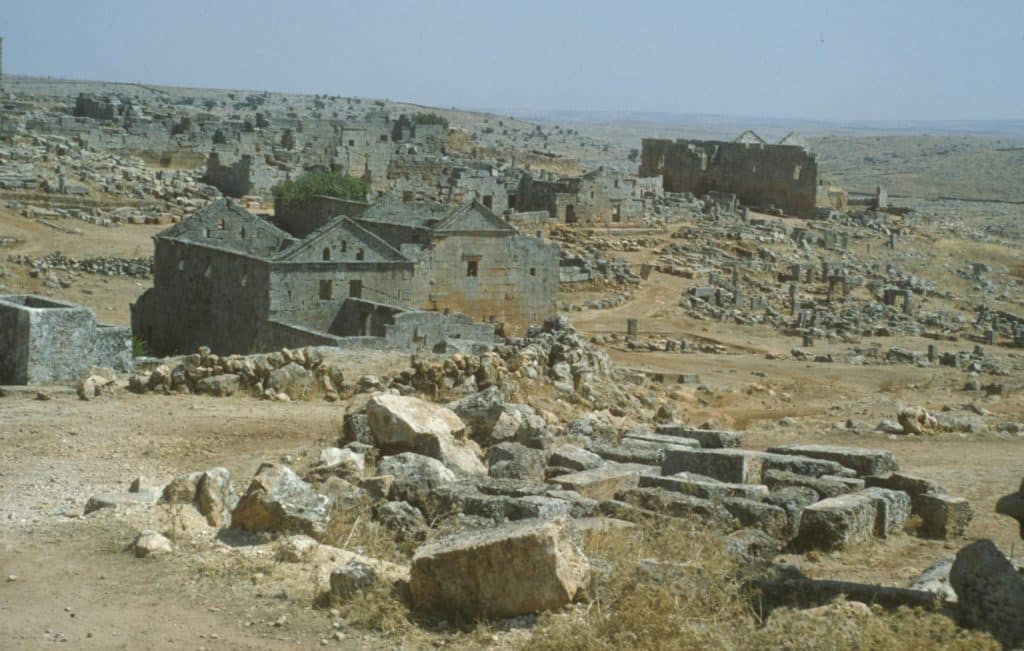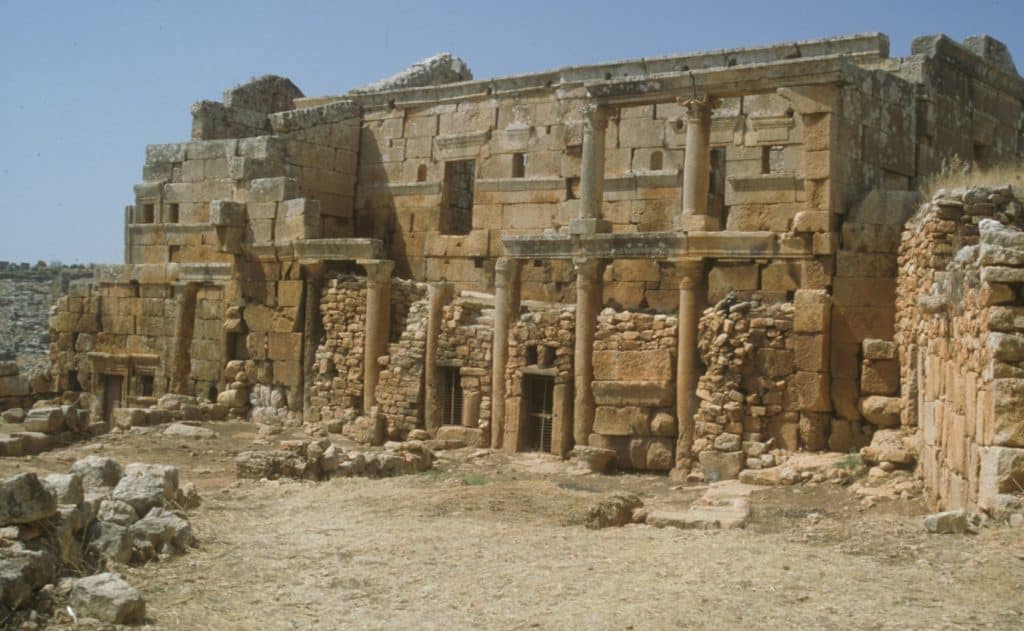Saving heritage isn’t just about preserving history for its own sake. Heritage forms a key part of the identity of nations, peoples, communities and individuals. Destruction of cultural heritage has been an element in genocide and ethnic cleansing, and has provoked and exacerbated sectarian violence.
Protection of cultural heritage isn’t an alternative to humanitarian activity, but part of humanitarian activity.

US National Archives (NARA) photo showing Pompeii being bombed
I research the destruction and protection of cultural heritage in the past, particularly in the Second World War, including deliberate destruction, incidental damage by bombing and artillery fire, looting and military mis-use of historic buildings.
I’ve published on these and the work of the Allied Monuments, Fine Arts and Archives organization (the real ‘Monuments Men’) in wartime Italy in my recent monograph Bombing Pompeii (University of Michigan Press, 2020) and in articles in edited volumes and journals such as the International Journal of Heritage Studies.
My research has been funded by the British Academy and the Leverhulme Trust. In my publications, I seek to extract explicit lessons for modern cultural property protection from historical experience. I disseminate those lessons through my involvement with the UK and international Blue Shield organization, sometimes characterised (with mixed accuracy) as the ‘Red Cross for monuments’ and through my engagement with UK and international armed forces, particularly the UK’s Cultural Property Protection Unit, for which I’ve provided advice and training activities based on my research.

Syrian archaeological heritage impacted by the war
As a former archaeologist of the Roman Mediterranean and Near-East, with fieldwork experience in Syria, Egypt and Tunisia as well as Italy and the UK, I have particular concern for cultural heritage protection in those areas, and have mentored research by displaced Syrian colleagues for the Cara NGO’s Syria Programme.
Project lead: Nigel Pollard
Project duration: 2018 – current
Contact Nigel: n.d.pollard@swansea.ac.uk
